Recognizing Elder Abuse: Signs and Symptoms to Be Aware Of
At Goldberg & Goldberg, we understand the gravity of elder abuse, a distressing reality for far too many seniors. Though the following indicators might not definitively confirm abuse, neglect, or exploitation, they often suggest that something is amiss. Should you observe any of these warning signs, it is crucial to report your concerns to law enforcement or Adult Protective Services for the well-being of the vulnerable individual.
Physical Indicators of Potential Abuse
- Unattended injuries or those that do not align with the provided explanation
- Discomfort or pain upon contact
- Visible cuts, puncture wounds, burns, welts, or bruises
- Symptoms of dehydration or malnutrition not linked to a medical condition
- Unhealthy skin tone
- Hollow-looking eyes or cheeks
- Mismanagement of medication
- Dirty clothing or bedding
- Excessive health service usage or “doctor-shopping”
- Absence of basic provisions such as adequate food, water, or utilities
- Missing personal belongings or an environment devoid of comforts
Behavioral Clues That Suggest Elder Abuse
- Display of fear or anxiety
- Agitation, irritability, or anger
- Social isolation or withdrawal, signs of depression
- A resigned, non-responsive, or indifferent demeanor
- Inconsistencies in stories or implausible explanations
- Reluctance to communicate openly
- Confusion or mental disorientation
Warning Signs Exhibited by Caregivers
- Deliberate isolation of the elder from friends or family
- Displays of aggression, apathy, or hostility toward the senior
- Past issues with substance abuse, mental health, criminal activity, or domestic violence
- A noticeable lack of warmth or affection towards the elder
- Inappropriate behavior that may signify sexual impropriety
- Contradictory explanations for events or injuries
- Emotional manipulation by expressing the elder as a burden
Financial Exploitation Alerts
- The elder bestowing costly gifts on the caregiver unexpectedly
- Missing property or personal documents or unauthorized use of credit cards
- A pattern of unpaid expenses
- Creation of a new will despite the elder’s impaired faculties
- Addition of the caregiver’s name to the senior’s bank accounts
- Ignorance regarding their own financial resources
- An elder coerced into signing loans or documents
- Common instances of checks issued to “cash”
- Uncharacteristic bank account transactions
- Discrepancies on tax returns
- Seniors unaware of financial meetings with bankers or lawyers
- Caregivers who are reticent to make necessary expenditures for the elder
- Forged or unrecognizable signatures on financial documents
If you or a loved one have encountered any of the signs above, it is imperative to seek assistance. At Goldberg & Goldberg, we are committed to dealing with these sensitive issues with compassion and resolve. Contact us immediately for a free consultation at (301) 654-5757, and let our experience guide you in protecting those who cannot protect themselves.




